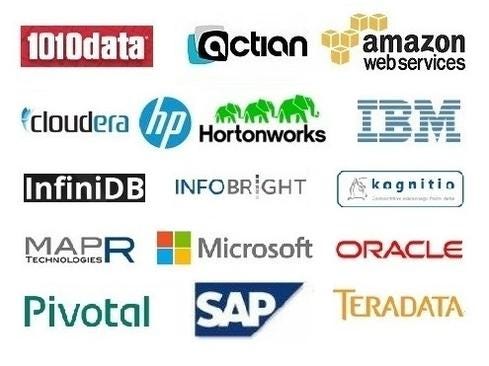TIBCO Shakes Up BI Market With Jaspersoft Buy
Pairing open source Jaspersoft with top-selling Spotfire, TIBCO hopes to disrupt the business intelligence and embedded analytics market.


16 Top Big Data Analytics Platforms
16 Top Big Data Analytics Platforms (Click image for larger view and slideshow.)
TIBCO made a shrewd move when it acquired Spotfire. Now the company is hoping it can catch lightning in a bottle a second time with the $185 million acquisition of Jaspersoft announced late Monday.
Jaspersoft provides commercial subscription support for open source data-integration, business intelligence, and analytics software it develops and upgrades with help from a large community of more than 400,000 registered users. The company is best known for its low-cost open source ETL and reporting software, as well as for embedded BI software used by partners such as Nike, Mint.com, FedEx, and McGraw Hill to deliver more than 140,000 analytics-infused applications.
[Want more on BI market dynamics? Read Gartner BI Magic Quadrant: Winners & Losers.]
When TIBCO acquired Spotfire for $195 million in 2007, it was in the midst of the great consolidation of the BI market in which IBM acquired Cognos, Oracle acquired Siebel and Hyperion, and SAP acquired BusinessObjects. These were the leading business intelligence products of their day (along with MicroStrategy and InformationBuilders). But since that time, Spotfire has emerged as the third name in a hot trio that also includes Tableau Software and QlikTech.
These data-discovery products have seen the fastest growth in the category ever since, while the likes of IBM Cognos, Oracle OBIEE, SAP BusinessObjects, and MicroStrategy have seen flat to slow sales growth. But reporting, ad-hoc query tools, and embeddable BI software remain necessary. Here's where TIBCO is betting that Jaspersoft will complement Spotfire and give it a complete portfolio.
"The two together create a full spectrum of capabilities, with Spotfire focused on data-discovery, location analytics, and mobile KPIs, and now we have in Jaspersoft pixel-perfect reporting and embedded analytics," says Murray Rode, TIBCO's chief operating officer, in an interview with InformationWeek. "IBM and Oracle have always been head-to-head competitors, but this deal lets us get more aggressive in the BI-reporting space with a disruptive technology."
Jaspersoft is disruptive in that it's open source software that offers lower costs than conventional products, he says. He also notes that it's newer technology that's "easy to use." Where TIBCO has relied mostly on direct selling, the company is hoping to take advantage of Jaspersoft's channel-driven sales model to expand its selling reach to small and midsized companies. This could be a boon to Spotfire, although Rode says he did not foresee creating an open source version of Spotfire, a product that has been mostly sold under a commercial, perpetual-license model.
TIBCO is not unfamiliar with subscription-based selling, having offered Spotfire, Cloud Bus (data-integration), and Clarity (data-staging) cloud services subscriptions. Nonetheless, Rode says TIBCO will undoubtedly gain expertise in subscription selling from the Jaspersoft team.
"Jaspersoft has a sizeable business through subscriptions and open source, and they have a longer history and greater depth in how you run a salesforce and how you market, sell, and integrate campaigns to drive subscription revenue," he says.
Will Jaspersoft's open source community be receptive to new commercial ownership? Rode stresses that TIBCO is keeping the entire Jaspersoft management team and is committed to supporting the independent brand and open source business model.
"TIBCO sees the open source community as a great asset, and there's no doubt that that's the biggest factor in why we can go to market inexpensively and disrupt the traditional BI players," says Jim Bell, Jaspersoft's chief marketing officer. "Our technical co-founders and all the open source projects are staying, and all of our products will continue to be available through open source."
Private clouds are moving rapidly from concept to production. But some fears about expertise and integration still linger. Also in the Private Clouds Step Up issue of InformationWeek: The public cloud and the steam engine have more in common than you might think (free registration required).
About the Author
You May Also Like






